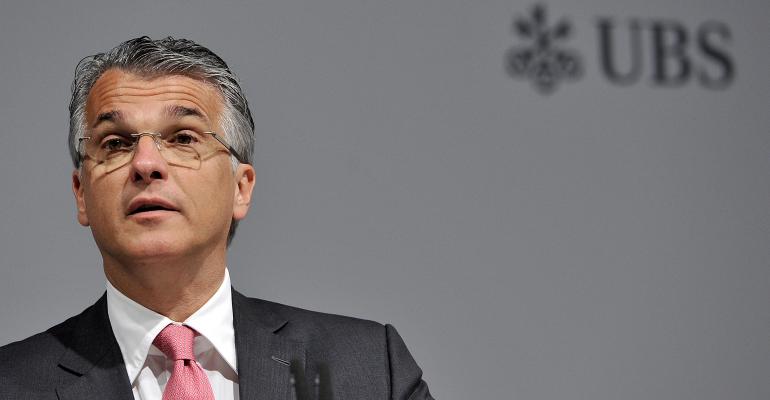By Elisa Martinuzzi
(Bloomberg Opinion) -- UBS Group AG Chief Executive Officer Sergio Ermotti delivered a catalog of bad news on the first-quarter performance on Wednesday. That the world’s largest wealth manager is also prone to revenue swings was probably the most alarming.
Describing it as “one of the worst” three-month periods in recent history, Ermotti said UBS’s investment bank income will decline by about one third compared to the same period last year. There was little merger and IPO activity, especially outside of the U.S.
Volatile earnings was one reason the bank pivoted away from securities trading after the financial crisis to focus on the steadier business of investing for the rich. But revenue at its bigger wealth management unit is on course to fall by about 9 percent, the most in three years, according to Bloomberg Intelligence.
Behind the drop in both businesses was muted trading by investors who remained in a “wait and see” mode, said Ermotti. In fact, “the behavior of our wealth management and institutional clients is highly correlated this time around,” he told a Morgan Stanley conference on Wednesday. Add to the mix lower recurring fees after the market drop in the fourth quarter, and being heavily geared toward managing money is not such a boon.
It’s no surprise that UBS shares fell on the news, dragging with it its main Swiss wealth rivals, Julius Baer and Credit Suisse Group AG. Still, UBS has attracted net new funds this quarter, and is doing as well if not better than peers in attracting money, said Ermotti. Even though the magnitude of the first quarter’s deterioration was partly due to comparisons to a particularly strong fourth quarter, the drop in the share price is nevertheless justified.
The hit to wealth from a difficult trading environment was already visible in the fourth quarter. Clients pulled funds from UBS then as they paid back some debt or shifted assets to make private investments. This time around, the rich simply sat still. Transaction-based income could be down as much as 25 percent, said Ermotti, mainly driven by Asia Pacific clients. Much like its competitors, that’s the region that’s supposed to drive future growth at UBS.
The 58-year-old executive has pledged that returns will be line with those in 2018. And even with the additional provisions the bank just took after a multi-billion dollar fine in France, capital ratios at the end of the quarter will also be in line with guidance, he said.
Still, Ermotti’s revelation that wealth management is undergoing a severe contraction, even if temporary, will hardly make the problem with expenses go away. Though the firm is redoubling efforts by slowing hiring and stopping some IT projects to add another $300 million of savings this year, the one thing the bank can do is to cut more costs.
Elisa Martinuzzi is a Bloomberg Opinion columnist covering finance. She is a former managing editor for European finance at Bloomberg News.
To contact the author of this story: Elisa Martinuzzi at [email protected]
For more columns from Bloomberg View, visit bloomberg.com/view





